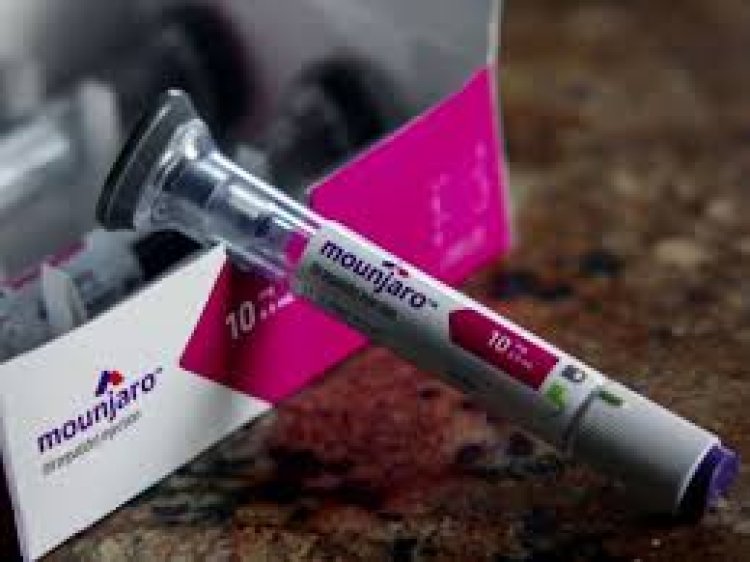Mounjaro Injection Side Effects in Dubai – What You Must Know Before Starting
In a city like Dubai—renowned for top-tier healthcare—accessing safe, effective treatments is easier than ever when done the right way. Mounjaro injection in Dubai offers powerful health benefits, but must be handled responsibly.
Share this Post to earn Money ( Upto ₹100 per 1000 Views )
As the popularity of the Mounjaro injection in Dubai rises due to its effectiveness in managing type 2 diabetes and aiding weight loss, many prospective users want to understand the potential side effects before beginning treatment. This comprehensive guide explores the common, less common, and serious side effects associated with Mounjaro. We also cover how to manage them and when to seek medical advice — all within the context of Dubai’s healthcare environment.

Table of Contents
-
What Is Mounjaro Injection?
-
Why Are Side Effects Important to Understand?
-
Common Side Effects of Mounjaro
-
Less Common and Rare Side Effects
-
Serious Side Effects That Need Immediate Attention
-
How to Manage Mild to Moderate Side Effects
-
Precautions and Contraindications
-
When to Contact Your Dubai Healthcare Provider
-
Tips for Minimizing Side Effects
-
Final Thoughts: Balancing Benefits and Risks
1. What Is Mounjaro Injection?
Mounjaro (tirzepatide) is a once-weekly injectable medication approved for type 2 diabetes and increasingly used for medically supervised weight loss. It works by mimicking gut hormones to regulate blood sugar, suppress appetite, and promote weight reduction. Its dual action on GLP-1 and GIP receptors offers enhanced metabolic benefits.
2. Why Are Side Effects Important to Understand?
Every medication has potential side effects, and knowing what to expect helps patients:
-
Prepare mentally and physically
-
Distinguish between normal reactions and warning signs
-
Communicate effectively with healthcare providers
-
Ensure safe and effective use of the medication
Understanding side effects is particularly important in Dubai, where patients may access Mounjaro through private clinics or hospitals such as Aster, NMC, and others, where healthcare standards are high but patient awareness varies.
3. Common Side Effects of Mounjaro
The most frequently reported side effects tend to be mild and transient. They include:
-
Nausea: The most common, often occurring in the first few weeks. Usually mild and decreases over time.
-
Vomiting: Less common but can occur alongside nausea.
-
Diarrhea: Loose stools may happen but typically resolve within days.
-
Constipation: Some users experience bowel irregularity.
-
Loss of Appetite: While this helps with weight loss, it may initially cause discomfort.
-
Fatigue: Mild tiredness or weakness reported by some.
-
Injection Site Reactions: Redness, swelling, or mild pain at the injection site.
These side effects often improve as the body adjusts to the medication.
4. Less Common and Rare Side Effects
Though uncommon, some patients may experience:
-
Indigestion or heartburn
-
Dizziness or lightheadedness
-
Headache
-
Increased heart rate
-
Low blood sugar (hypoglycemia) especially if combined with other diabetes medications
-
Allergic reactions: Rare but can include rash, itching, or swelling.
5. Serious Side Effects That Need Immediate Attention
Serious side effects are rare but require urgent medical care:
-
Pancreatitis: Severe abdominal pain with vomiting may indicate inflammation of the pancreas.
-
Severe allergic reactions: Difficulty breathing, swelling of face/throat, or hives.
-
Gallbladder problems: Pain in the upper right abdomen, fever, or jaundice.
-
Kidney problems: Changes in urination or swelling of limbs.
In Dubai, emergency healthcare services are highly accessible, and any such symptoms should prompt immediate hospital or clinic visits.
6. How to Manage Mild to Moderate Side Effects
Tips for managing common side effects include:
-
Taking the injection with or after meals to reduce nausea
-
Staying hydrated and consuming fiber-rich foods to manage diarrhea or constipation
-
Resting adequately and avoiding strenuous activity if fatigued
-
Rotating injection sites to reduce local skin reactions
-
Discussing dose adjustments with your healthcare provider if side effects persist
7. Precautions and Contraindications
Before starting Mounjaro, inform your doctor about:
-
Any history of pancreatitis or thyroid cancer
-
Existing kidney or liver issues
-
Other medications or supplements you use
-
Pregnancy or breastfeeding status
Mounjaro is not recommended for patients with a personal or family history of medullary thyroid carcinoma or multiple endocrine neoplasia syndrome type 2.
8. When to Contact Your Dubai Healthcare Provider
Seek medical advice if you experience:
-
Persistent or worsening nausea/vomiting
-
Severe abdominal pain
-
Signs of allergic reactions
-
Symptoms of hypoglycemia (shaking, sweating, confusion)
-
Any other unusual or severe symptoms
Dubai’s clinics offering Mounjaro, including private endocrinologists and diabetes centers, provide thorough follow-up to monitor safety and effectiveness.
9. Tips for Minimizing Side Effects
-
Start with the lowest prescribed dose and gradually increase as advised
-
Maintain a balanced diet rich in fluids and fiber
-
Monitor blood sugar levels closely, especially if on insulin or sulfonylureas
-
Keep regular appointments with your healthcare team
-
Avoid self-medicating or altering doses without medical approval
10. Final Thoughts: Balancing Benefits and Risks
While Mounjaro injection in Dubai offers substantial benefits for diabetes management and weight loss, being informed about side effects helps ensure safe use. Most side effects are manageable and temporary, and the medication’s benefits often outweigh the risks when used under medical supervision.
Always communicate openly with your healthcare provider and use Dubai’s excellent healthcare resources to support your treatment journey.
















